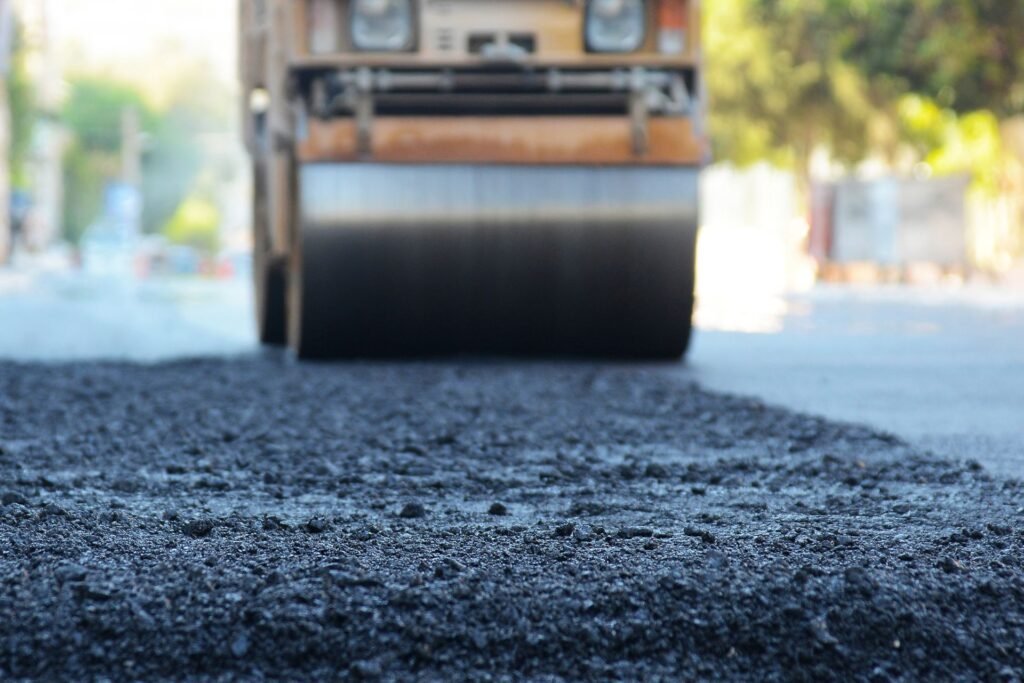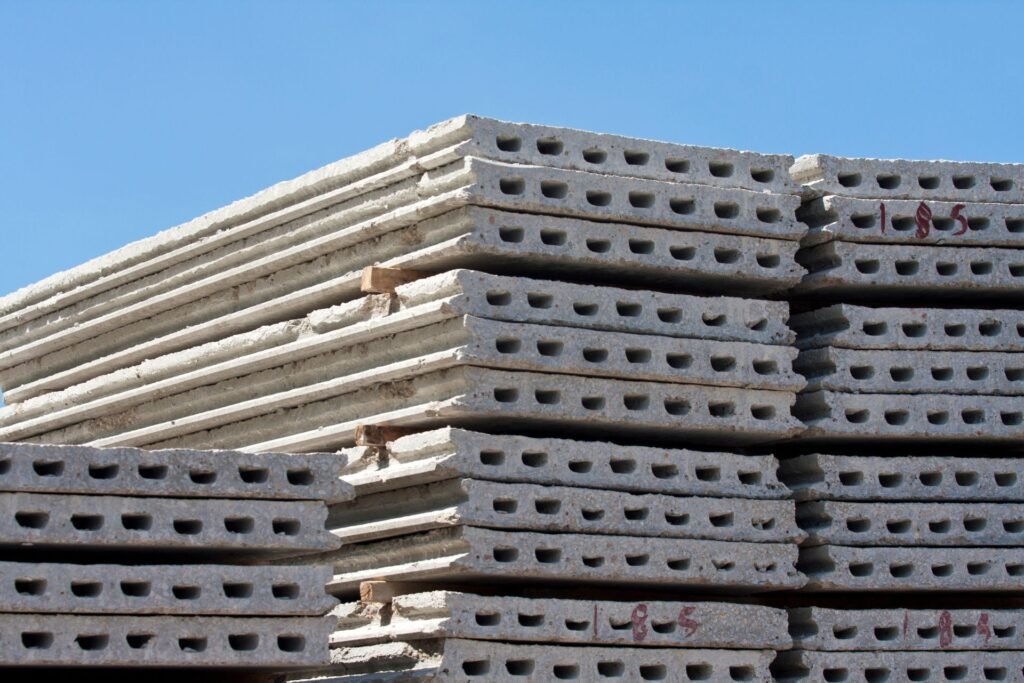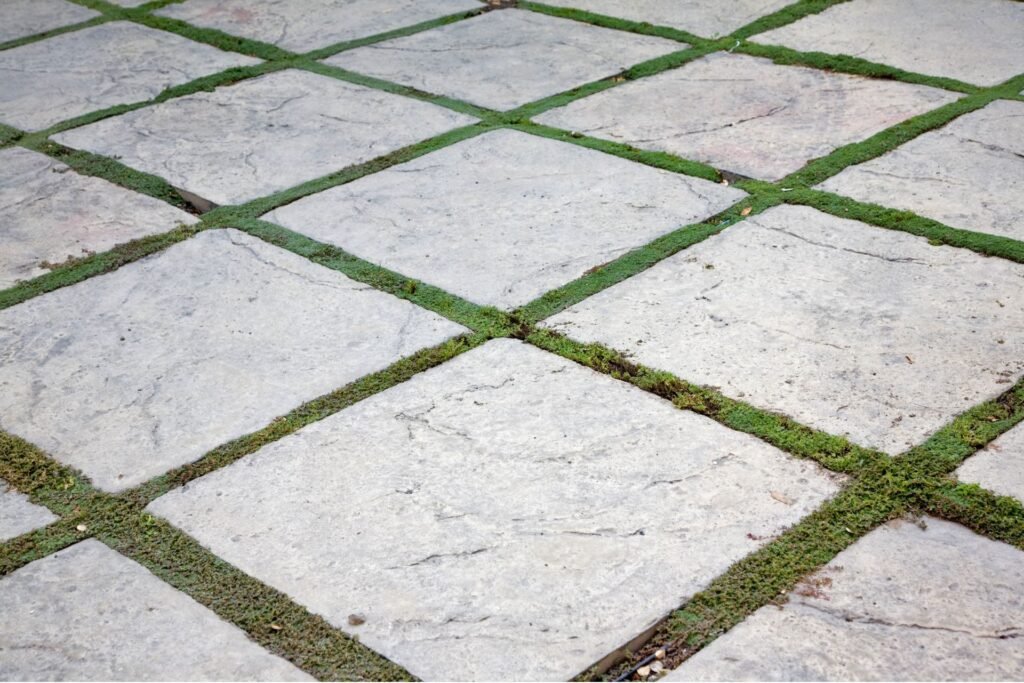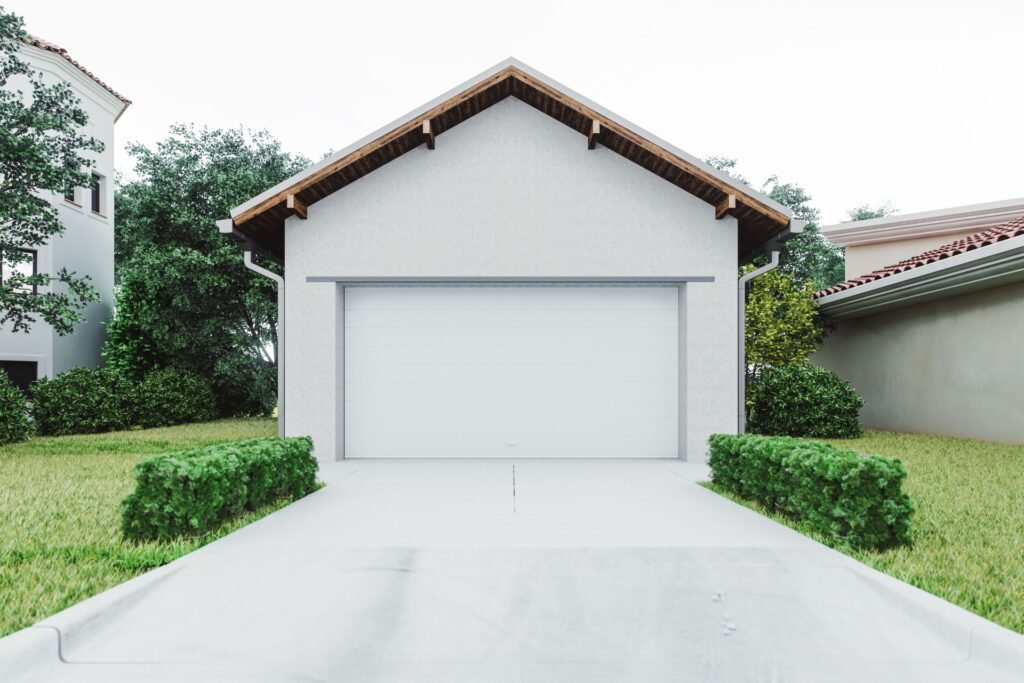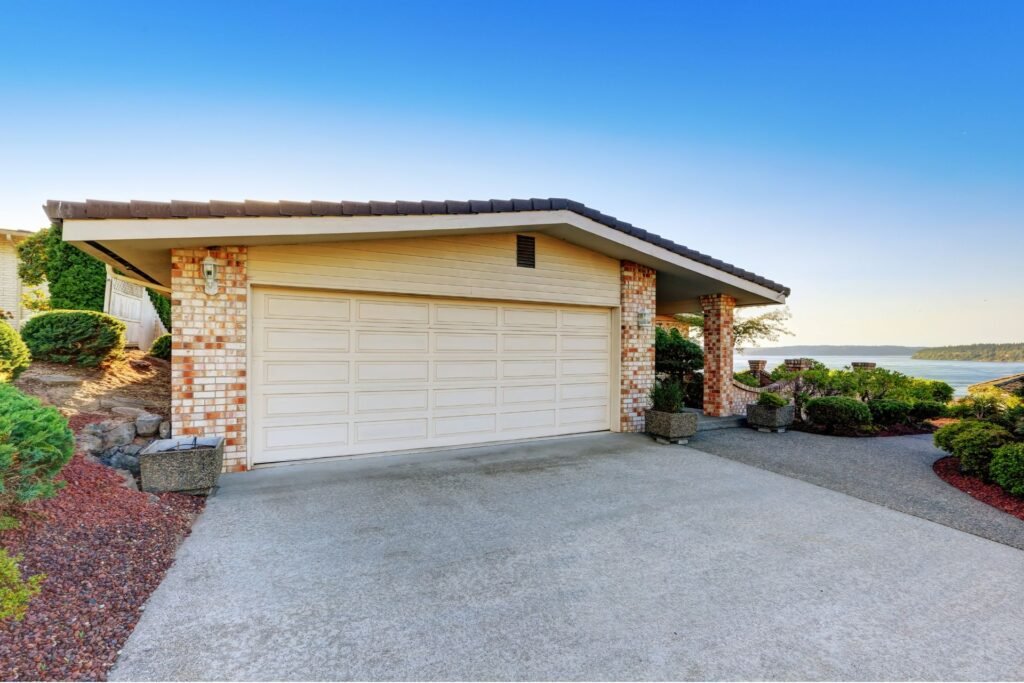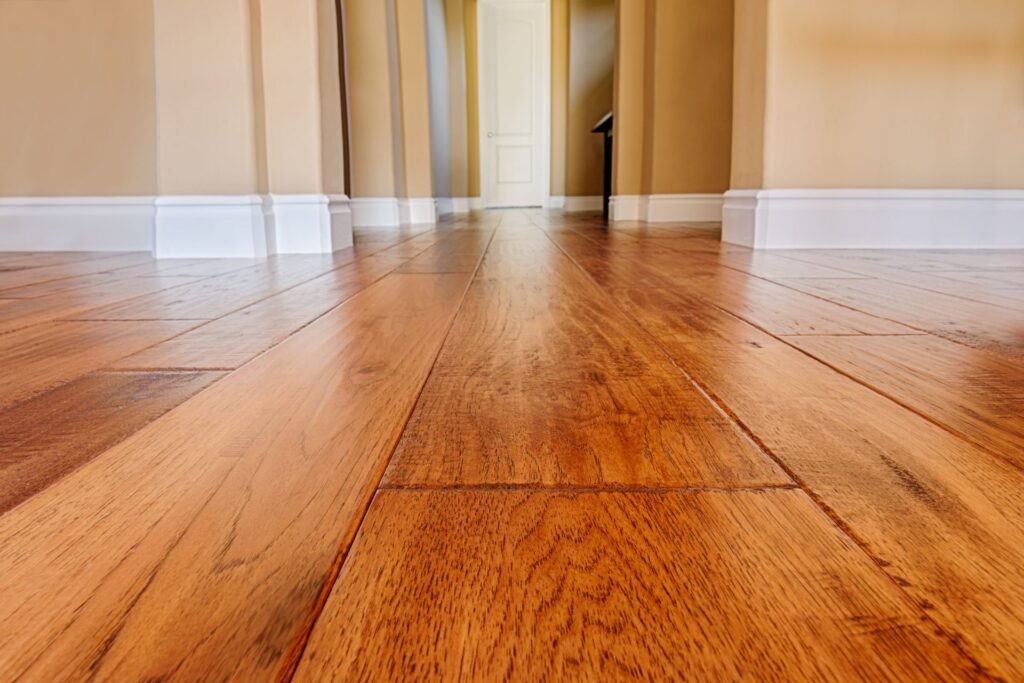Welcome to our comprehensive guide on understanding the minimum driveway width in Wellington! Whether you’re a homeowner looking to enhance your property or a developer planning your next project, knowing the local regulations and best practices for driveway construction is crucial. In Wellington, where the unique terrain and zoning laws can present challenges, it’s essential to ensure that your driveway is not only functional but also complies with city requirements. In this article, we’ll walk you through everything you need to know—from the legal minimum driveway width to practical design tips—so you can create a safe, convenient, and aesthetically pleasing driveway for your property.
The minimum driveway width in Wellington typically ranges from 2.5 to 3 meters for a single-car driveway and 4.5 to 6 meters for a two-car driveway. These requirements may vary depending on the property type and zoning regulations, so it’s essential to check with the Wellington City Council for specific guidelines based on your location.
Table of Contents
Understanding Wellington’s Driveway Regulations
Importance of Compliance
When building or renovating a property in Wellington, adhering to the city’s driveway regulations is not just a legal requirement—it’s essential for avoiding potential penalties and ensuring long-term benefits. Failing to comply with the driveway width requirements set by the Wellington City Council can lead to various complications. These may include delays in getting construction approvals, difficulties in selling your property, and, in some cases, hefty fines. By understanding and following these rules, you safeguard your investment and contribute to the overall safety and accessibility of the community.
One of the primary reasons compliance is critical is that driveway regulations are designed to ensure safety, efficient use of space, and accessibility. Ignoring these guidelines can result in penalties, but it also means you could face costly adjustments during construction or renovation if the driveway doesn’t meet required standards. Additionally, properties that fail to comply may have trouble during resale because future buyers will face the same regulatory issues. A compliant driveway can enhance both the marketability and functionality of your property.
Overview of Wellington City Council Requirements
Wellington City Council (WCC) has laid out specific guidelines to help property owners create driveways that are safe and functional. These rules dictate the minimum width required for both single-lane and dual-lane driveways, which vary depending on the zoning and the location of the property within the city.
- Single-Lane Driveways: Typically, the standard minimum width for a single-lane driveway is around 2.5 to 3 meters. This allows for safe vehicle passage and ensures that cars can enter and exit the property without causing disruptions to traffic flow or posing safety risks.
- Dual-Lane Driveways: For dual-lane driveways, which accommodate two vehicles simultaneously, the minimum width is usually between 5 to 6 meters. This larger width is necessary to allow cars to pass each other without conflict and ensures ease of use for properties with higher traffic volumes, such as multi-unit dwellings or commercial properties.
Different residential areas in Wellington may have specific zoning requirements that impact driveway regulations. For example, in densely populated urban zones, narrower driveways might be permitted due to space constraints. However, in suburban or rural areas, wider driveways may be mandatory to allow for safe turning and clear access to the road. Property owners should consult the WCC’s zoning guidelines to determine the exact requirements for their area.
Why Regulations Matter
Driveway regulations aren’t arbitrary—they serve essential functions related to safety, accessibility, and aesthetics. The minimum width requirements are established to ensure that vehicles can enter and exit properties without obstructing traffic or creating hazards for pedestrians. A properly designed driveway also provides easy access for emergency services, such as fire trucks and ambulances, which is crucial in emergencies.
From a safety standpoint, driveways that are too narrow may force drivers to make sharp turns or navigate difficult angles, increasing the risk of accidents. For families with children or those living in busy neighborhoods, ensuring that the driveway complies with safety standards is a priority.
Accessibility is another key consideration. Driveways need to accommodate vehicles of different sizes, including delivery vans, service vehicles, and, importantly, emergency services. A non-compliant driveway could potentially delay emergency response times if the driveway is too narrow for larger vehicles.
Finally, aesthetics play a significant role in driveway regulations. The Wellington City Council wants to maintain a uniform and appealing appearance in residential and commercial areas. A properly designed driveway enhances the curb appeal of a property and ensures that the neighborhood looks cohesive and well-maintained.
In conclusion, complying with Wellington’s driveway regulations is essential for several reasons. Not only does it prevent legal and financial repercussions, but it also ensures that your property is safe, accessible, and visually appealing. Understanding and adhering to these guidelines benefits both you as a property owner and the wider community, making Wellington a safer and more organized place to live.

What Is The Minimum Driveway Width In Wellington?
When planning to build a driveway in Wellington, it’s crucial to follow local guidelines and regulations to ensure that your driveway is safe, functional, and compliant with city standards. Below, we’ll walk through the minimum driveway width requirements in Wellington, including considerations for different types of properties and scenarios like shared driveways.
General Guidelines for Driveway Width in Wellington
The minimum driveway width is determined based on how many vehicles you need to accommodate. Here’s a breakdown of the typical requirements:
- Single-car driveway: For a single car, the minimum width for a driveway in Wellington usually ranges between 2.5 to 3 meters. This provides enough space for a standard vehicle to enter and exit safely while allowing for some maneuverability.
- Two-car driveway: If you’re looking to park two cars side by side, the minimum width is wider, typically between 4.5 to 6 meters. This allows for sufficient space for both cars to park and open doors without obstructing one another.
These are the standard guidelines for most properties, but there are additional factors that might influence the specific requirements for your property, which we’ll explore below.
Variations Based on Property Type
The minimum driveway width can vary depending on the type of property and its location within Wellington. There are key distinctions between urban and suburban areas, as well as smaller versus larger plots of land.
Urban vs. Suburban Areas
- In urban areas, where space is often limited, driveways tend to be narrower. For instance, an urban single-car driveway might be closer to the minimum of 2.5 meters, due to the compact nature of city lots.
- In suburban areas, where land is generally more abundant, wider driveways are more common. Here, you may have the flexibility to extend a two-car driveway to the upper limit of 6 meters or more, particularly if you have a larger lot.
Narrow vs. Large Plots of Land
- On narrow plots of land, you may need to maximize space efficiently. In this case, the driveway width may be closer to the minimum to preserve garden or yard space.
- For larger properties, there’s often more room to install wider driveways, potentially beyond the standard 6 meters for a two-car driveway. Wider driveways are also common in larger homes where turning space or additional parking is needed.
Shared Driveways
In situations where multiple properties share a driveway, special considerations apply. Shared driveways are often governed by right-of-way agreements to ensure all users have fair access. The minimum width for shared driveways is typically wider than a standard single-car or two-car driveway, ensuring multiple vehicles can pass or park simultaneously without difficulty.
- Legal Width Requirements: For shared driveways, there may be specific legal requirements regarding the width. These ensure that the driveway can support the needs of multiple users and allow for safe access and egress. In many cases, the minimum width for shared driveways can start at 3 meters but may need to be wider, particularly if heavy vehicles or frequent use is expected.
It’s also essential to ensure that a shared driveway is properly maintained and clear of obstructions, as multiple users need consistent, reliable access.
When designing or updating a driveway in Wellington, it’s important to comply with local regulations regarding minimum widths. A driveway that’s too narrow may not only be inconvenient but could also violate zoning or building codes. Always consult with your local council or a qualified professional to confirm the specific requirements for your property, particularly if you’re dealing with unique circumstances like shared access or unusually shaped plots of land.
By adhering to the guidelines outlined above, you’ll ensure your driveway is both functional and compliant with Wellington’s standards, creating a smoother experience for all users.

Factors That Influence Driveway Width Decisions
When planning your driveway, several critical factors should guide your decision about its width. Whether you’re considering current needs or anticipating future changes, the width of your driveway plays a vital role in functionality, safety, and even the aesthetic appeal of your property. Below, we explore some of the most important aspects to consider.
Vehicle Size and Type
One of the most significant factors when deciding the width of your driveway is the size and type of vehicles that will regularly use it. For example, smaller vehicles like sedans require less space than larger SUVs or trucks. If you own or plan to own larger vehicles in the future, it’s essential to ensure your driveway can accommodate their size comfortably.
Additionally, future vehicle upgrades are worth considering. You may have a sedan now, but if you plan on upgrading to a larger vehicle, you’ll need a wider driveway. Without enough width, maneuvering can become difficult, increasing the risk of accidental damage to your car or landscaping.
Parking Needs
Parking needs also play a crucial role in determining driveway width. If your home often accommodates multiple vehicles or you expect frequent visitors, planning for ample parking is key. A driveway that is too narrow can make it challenging for cars to park side by side or turn around easily.
Moreover, it’s not just about fitting vehicles—considering the turning radius is essential. For instance, larger cars like SUVs need a wider turning space. You’ll want to ensure that anyone using the driveway can park or reverse without difficulty. Additionally, having extra width allows for guest parking, which can be especially helpful if street parking is limited in your area.
Pedestrian Pathways
When thinking about driveway width, safety considerations are paramount, particularly for pedestrians. A common oversight is neglecting the need for a designated pedestrian walkway alongside the driveway. If your family or guests frequently walk to and from their vehicles, or if children play in the front yard, having a clear, safe pathway is essential.
A separate pedestrian pathway not only improves safety by reducing the risk of accidents but also keeps foot traffic away from the vehicle space, reducing wear and tear on the driveway surface. In homes with children or pets, this separation becomes even more critical for added peace of mind.
Landscaping & Aesthetic Considerations
The driveway is one of the first things people notice when they approach your home, so its design significantly affects your property’s curb appeal. Wider driveways can contribute to a more spacious, welcoming look. However, there is a fine balance between aesthetics and functionality. Too wide, and the driveway might dominate the front yard, potentially detracting from the beauty of your landscaping. Too narrow, and it may appear cramped or underwhelming.
When making this decision, consider how the driveway integrates with your overall landscaping plan. For example, a driveway that’s proportionate to the rest of the property can blend seamlessly into the natural surroundings, enhancing the overall look. Thoughtful landscaping around the driveway edges, such as flower beds or small trees, can soften the driveway’s visual impact while still maintaining practicality.
In conclusion, when determining the width of your driveway, it’s essential to think beyond just fitting your current vehicle. Consider future needs, the importance of pedestrian safety, parking convenience, and how the driveway contributes to the overall aesthetic appeal of your home. Proper planning will ensure that your driveway is not only functional but also enhances your property’s value and curb appeal.

Challenges Of Driveway Construction In Wellington
Constructing a driveway in Wellington presents unique challenges due to its distinctive geographical and climatic conditions. Whether you’re building a new home or upgrading your current driveway, it’s crucial to understand the potential obstacles to ensure a durable and functional design. Here’s an in-depth look at the key challenges that homeowners may face during driveway construction in Wellington:
Topographical Challenges
Wellington is renowned for its beautiful, rugged landscapes, but these same hills and uneven terrains can pose significant difficulties when planning and constructing driveways. The steep nature of many properties in Wellington often requires more strategic planning than flat, suburban areas.
- Hilly and Uneven Terrain: Driveways on steep or sloped properties are particularly challenging. The incline not only affects the design but also the materials used and the overall structural integrity of the driveway. When working with a steep property, careful attention must be paid to the gradient, ensuring that the driveway remains functional while adhering to local safety standards. Specialized materials may be necessary to prevent erosion and ensure stability, especially on slopes.
- Planning for Steep Properties: When dealing with steep gradients, the width of the driveway becomes a critical consideration. Narrow driveways on steep inclines may create maneuverability issues, especially for larger vehicles. Adequate width allows for easier navigation and safer access to the property. Additionally, the right materials should be selected based on the slope. Concrete, for example, may offer better durability and resistance to erosion on steep surfaces compared to gravel or asphalt.
Weather Considerations
Wellington’s weather can be unpredictable, with strong winds and heavy rainfall being common throughout the year. These weather patterns directly impact the design and construction of driveways.
- High Winds and Rain: Strong winds can affect materials used during construction, while heavy rain can cause water runoff issues, which is particularly problematic on sloped driveways. Proper drainage systems are essential in preventing water accumulation and damage to both the driveway and the surrounding property. Ensuring that your driveway has an effective drainage plan is crucial to prevent pooling water, erosion, and the undermining of the driveway’s foundation.
- Driveway Placement and Drainage: The placement of your driveway needs to take into account the potential impact of wind and rain. A well-thought-out drainage system should include proper grading, gutters, and channels to direct water away from the driveway’s surface. Failure to address drainage properly can lead to long-term issues, such as cracks, surface damage, and even structural failure.
Council Approvals & Permits
One of the most overlooked aspects of driveway construction in Wellington is the need for council approvals and permits. Since driveways can affect public roads, water drainage, and neighboring properties, the Wellington City Council has clear guidelines and regulations that must be followed.
- Approval Process: Before beginning construction, homeowners must submit a detailed site plan and apply for the necessary permits. This documentation typically includes information about the property boundaries, driveway location, and proposed design. The approval process may also involve an assessment of environmental impact, particularly if the driveway is being constructed on a steep or sensitive landscape.
- Documentation and Site Plans: It’s essential to ensure that your site plan meets all council requirements before submitting your application. These plans may include topographical surveys, detailed descriptions of materials, and drainage solutions. Homeowners should be prepared to provide all necessary documentation and possibly engage with engineers or architects for more complex driveway projects.
For more detailed information on the requirements for driveway construction in Wellington, homeowners can refer to the Wellington City Council’s guide to residential driveways. This resource outlines all the necessary steps for obtaining approvals and ensures your project complies with local regulations.
By understanding these challenges and addressing them early in the planning process, Wellington homeowners can create a durable and functional driveway that stands up to the region’s unique terrain and weather conditions.

Driveway Materials And Their Impact On Width
When planning a driveway in Wellington, the choice of materials plays a significant role in determining not only the aesthetics and durability but also the functional width of the driveway. Each material has unique characteristics that can influence how wide your driveway should be for optimal performance and longevity. In this section, we will explore the common driveway materials in Wellington, discuss their durability and maintenance needs, and examine the cost implications associated with different materials and driveway widths.
Common Driveway Materials in Wellington
In Wellington, homeowners typically choose from a variety of materials for their driveways, including concrete, asphalt, gravel, and permeable pavers. Each of these materials has specific benefits and challenges when it comes to determining the appropriate width for your driveway.
- Concrete: One of the most popular materials, concrete offers a durable and smooth surface that is ideal for narrower driveways. It is strong enough to support heavy vehicles without needing additional width. However, the non-porous nature of concrete means water runoff can be an issue, which should be considered if you live in areas prone to heavy rain.
- Asphalt: Another widely used option, asphalt driveways provide flexibility and are easier to repair than concrete. However, the material can soften during Wellington’s warmer months, leading to potential indentations if the driveway is too narrow to support concentrated vehicle weight over time. Opting for a slightly wider asphalt driveway can help distribute the load more evenly and reduce wear and tear.
- Gravel: Gravel is a cost-effective option, but it requires more space than concrete or asphalt. Because gravel shifts over time, a wider driveway is recommended to accommodate tire tracks and prevent gravel displacement. A narrow gravel driveway could lead to ruts or uneven surfaces, particularly in Wellington’s rainy seasons.
- Permeable Pavers: Environmentally friendly and stylish, permeable pavers allow water to drain through the surface, reducing runoff and providing better water management. These pavers can work well for both standard and slightly wider driveways, depending on the pattern and installation method.
Durability and Maintenance Considerations
The driveway material you choose will also affect how durable your driveway is and what type of maintenance it requires, especially in the context of Wellington’s specific weather conditions and terrain.
- Concrete: Concrete driveways are extremely durable but may develop cracks over time, particularly in Wellington’s cooler, damp climates. While this material is low-maintenance, any cracks that form can widen if left untreated, meaning occasional sealing or repairs are necessary.
- Asphalt: Asphalt driveways require regular sealing to protect against weather damage and UV rays. In Wellington, where there can be significant rainfall and temperature changes, asphalt may be more susceptible to cracking if the driveway isn’t wide enough to distribute the vehicle’s weight.
- Gravel: Gravel driveways need frequent raking and replenishment, especially in windy or rainy Wellington weather. A wider gravel driveway reduces the need for constant repairs, as it helps prevent vehicles from scattering the gravel, reducing uneven surfaces.
- Permeable Pavers: These pavers are a great option for Wellington’s often wet climate, as they provide excellent drainage. However, weeds and moss can grow between the pavers if not properly maintained, and they may require occasional cleaning or resealing to keep them in top condition.
Cost Implications of Different Materials
The cost of installing a driveway in Wellington is largely influenced by the material you choose and the width of the driveway. Wider driveways typically require more materials and labor, which can significantly increase costs.
- Concrete: While concrete is one of the more expensive options upfront, its longevity makes it a cost-effective choice over time. However, increasing the width of a concrete driveway can drive up costs due to the higher price of materials and labor.
- Asphalt: Asphalt is generally more affordable than concrete but requires regular sealing and maintenance, which adds to the long-term cost. A wider asphalt driveway will increase both the installation and maintenance costs, particularly in Wellington’s fluctuating weather.
- Gravel: Gravel is the most cost-effective material to install, but it requires frequent maintenance. The need for a wider gravel driveway to accommodate wear and tear can increase material costs, though it will still be more affordable than concrete or asphalt.
- Permeable Pavers: These are often the most expensive option upfront but can save on drainage costs. Installing a wider permeable paver driveway will significantly increase material and labor costs, though the long-term benefits, such as reduced water runoff and low maintenance, can offset the initial investment.
In conclusion, the material you choose for your driveway in Wellington has a direct impact on the required width, durability, maintenance, and cost. Whether you opt for the durability of concrete, the flexibility of asphalt, the affordability of gravel, or the eco-friendliness of permeable pavers, carefully considering these factors will ensure that your driveway meets both your functional and budgetary needs.

Practical Tips For Designing A Functional Driveway
Designing a functional driveway goes beyond just creating a path for your car. It involves thoughtful planning, considering future needs, environmental impact, and accessibility. Below are some practical tips to help you create a driveway that not only meets your current needs but also serves you well for years to come.
Planning for Driveway Usage
When designing a driveway, one of the first things to consider is how you plan to use it both now and in the future. A well-thought-out design will accommodate changes in your lifestyle, such as the need for more parking space or larger vehicles.
- Future-Proofing Your Driveway: As your household grows or changes, so will the demand for parking. A key recommendation is to leave extra space in your design for potential expansion. This means factoring in the possibility of owning additional vehicles, such as a family car or a recreational vehicle, or even hosting guests. This forward-thinking approach can save you from costly modifications later on. If space allows, consider widening your driveway or adding an extra parking bay from the outset.
Driveway Layouts
The layout of your driveway can significantly influence how functional and user-friendly it is. Different designs serve different purposes and can enhance or limit ease of use.
- Straight vs. Curved Driveways: Straight driveways are often the simplest to design and offer the most direct route from the street to your home. They are ideal for smaller properties or when you want to maximize usable space. However, a curved driveway can add elegance and improve maneuverability on larger properties. Curved layouts also allow for more landscaping options, offering an aesthetically pleasing and welcoming entry to your home. When considering maneuverability, make sure the width of the driveway allows for easy turning, particularly for larger vehicles.
Incorporating Eco-Friendly Designs
Sustainability is an essential consideration for modern driveway designs, especially in regions like Wellington, where environmental impact is a key concern. Implementing eco-friendly options can help reduce runoff, conserve resources, and align with local environmental regulations.
- Eco-Friendly Materials and Drainage Solutions: Opting for permeable materials, such as permeable pavers or gravel, allows rainwater to seep into the ground rather than contribute to stormwater runoff. This not only helps prevent erosion but also supports local water conservation efforts. Additionally, consider incorporating proper drainage systems, such as swales or rain gardens, which can capture and filter water on-site. Choosing recycled or sustainably sourced materials for your driveway can also reduce your environmental footprint.
Accessibility Features
When designing a driveway, it’s important to consider accessibility, especially for those with mobility challenges. A functional driveway should cater to the needs of all individuals who may use it, ensuring ease and safety.
- Making Your Driveway Accessible: To make your driveway more accessible, consider features such as a gentle slope for easy wheelchair or walker use. The driveway surface should be smooth and even to avoid tripping hazards. For added convenience, ensure there’s enough room for easy entry and exit from vehicles, particularly for those with limited mobility. If your driveway has a steep incline, adding handrails or a graded ramp can further enhance accessibility.
By thoughtfully planning for future needs, considering layout options, incorporating eco-friendly materials, and ensuring accessibility, you can design a driveway that is not only functional but also sustainable and welcoming. Whether you’re building from scratch or updating an existing driveway, these tips will help you create a design that works for you now and in the future.

Common Mistakes To Avoid When Planning Your Driveway
When it comes to designing a driveway, many homeowners tend to overlook key details that can lead to long-term issues. This section highlights some of the most common mistakes people make when planning their driveways and offers insights on how to avoid them.
Too Narrow Driveways
One of the biggest mistakes is designing a driveway that is too narrow. While a narrow driveway might seem like a space-saving idea or a way to reduce costs, it can cause major inconveniences down the road. A driveway that is too narrow makes it difficult to maneuver vehicles, especially when parking larger cars or multiple vehicles side by side. It can also pose challenges for reversing, especially if there is limited space to turn around. Over time, you might find yourself parking on the lawn or having to make tight, awkward turns, which can be frustrating and can even damage your car or landscaping.
To avoid this, always plan for a driveway width that accommodates your current and future vehicles. Consider how easy it will be to get in and out of the car, and whether there is enough space for opening doors without hitting other objects. A well-planned driveway ensures smooth and hassle-free access to your home.
Ignoring Drainage and Slope
Drainage is often an afterthought when planning a driveway, but it’s one of the most critical factors to consider. Poor drainage can lead to water pooling on your driveway, which not only creates an unsightly mess but can also cause long-term damage, such as cracks and potholes. In areas with significant rainfall, like Wellington, this issue is even more pronounced. A driveway that doesn’t account for proper water runoff can become a hazard, with water flowing towards your home’s foundation or pooling in low areas, leading to erosion and expensive repairs.
When designing your driveway, think about how water will flow during heavy rain. Ensure that the driveway has a slight slope to direct water away from your home and into proper drainage channels. Incorporating drainage systems such as French drains or catch basins can further help manage water effectively. Proper planning for drainage will keep your driveway in good condition and prevent water-related problems in the future.
Underestimating Long-term Needs
A common mistake many homeowners make is failing to plan for their future needs. While your current driveway might seem adequate for now, it’s important to consider what you might need in the years to come. Will you be adding a larger vehicle to your household, such as an SUV or a boat trailer? Or perhaps you’ll need space for additional cars as your family grows? Many people also overlook the possibility of needing extra parking space for guests.
Failing to account for these future changes can result in a driveway that feels cramped or requires costly expansions down the line. It’s much more cost-effective to build a driveway that’s slightly bigger than you need right now, rather than having to tear it up and expand it later. Planning for long-term growth ensures that your driveway remains functional and convenient, no matter how your household evolves.
By avoiding these common mistakes—building too narrow, neglecting proper drainage, and underestimating future needs—you can design a driveway that not only enhances the functionality of your home but also stands the test of time.

FAQs: About Minimum Driveway Width Wellington
What is the minimum driveway width required in Wellington?
The minimum driveway width in Wellington typically ranges between 2.5 to 3 meters for a single-car driveway and 4.5 to 6 meters for a two-car driveway. However, this can vary based on the property type, zoning rules, and the specific location. It’s recommended to check with the Wellington City Council for detailed requirements for your area.
Can I apply for an exemption if my driveway is too narrow?
Yes, in some cases, you can apply for an exemption or a resource consent if your property’s layout restricts you from meeting the minimum width requirements. It’s best to consult with a professional and the Wellington City Council to explore your options and ensure your application meets the necessary criteria.
Do shared driveways have different width requirements?
Shared or common driveways often require a wider width to accommodate multiple users. For two-way access, the minimum width can increase to 5-6 meters or more, depending on the number of properties sharing the driveway and local regulations.
What are the typical materials used for driveways in Wellington?
Common driveway materials in Wellington include concrete, asphalt, gravel, and permeable pavers. Each material has its pros and cons, especially considering Wellington’s weather conditions, such as frequent rain and wind. It’s important to choose a material that is durable and suitable for your property’s terrain.
How do I get my driveway approved by the Wellington City Council?
To get your driveway approved, you’ll need to submit a site plan and follow the local guidelines set by the Wellington City Council. This includes meeting the minimum width, ensuring proper drainage, and complying with safety regulations. Consulting a professional can help streamline this process.
What factors should I consider when determining my driveway width?
When deciding on your driveway width, consider the size of the vehicles that will be using it, future parking needs, pedestrian access, and the overall layout of your property. It’s also important to think about safety, turning radius, and accessibility for emergency services.
Can I widen an existing driveway, and do I need permission?
Yes, you can widen an existing driveway, but you may need to apply for resource consent or approval from the council, especially if it impacts the curb, footpath, or public road. It’s important to check with local authorities before making any changes.
What is the best driveway design for a steep property in Wellington?
For properties with steep terrain, it’s crucial to design a driveway with proper drainage and slope considerations to prevent water runoff and erosion. You may also need to use materials with better grip, such as permeable pavers, and ensure that the driveway has an appropriate gradient for vehicle access.
Does the choice of driveway material affect its width?
Yes, the choice of material can influence the required width. For example, gravel driveways may need to be slightly wider to accommodate vehicle tire tracks and reduce wear and tear. Similarly, certain materials may affect how the driveway handles rain and drainage, which can also impact width considerations.
How can I make my driveway more environmentally friendly?
You can make your driveway more eco-friendly by using permeable pavers that allow rainwater to seep through, reducing runoff and promoting groundwater recharge. Additionally, incorporating native plants along the edges can enhance both the aesthetics and environmental impact of your driveway.
Conclusion
The width of your driveway plays a crucial role in both functionality and aesthetics, especially when adhering to Wellington’s local regulations. Several factors, such as the size of your property, intended use, and traffic flow, influence the ideal driveway width. By considering these elements alongside practical design tips, you can create a driveway that suits your lifestyle while remaining compliant with legal guidelines. To ensure your project meets both personal and regulatory requirements, it’s wise to consult with a professional. Start planning today by reviewing Wellington City Council’s guidelines or reaching out to a trusted driveway contractor to bring your vision to life.
About the Author:
Mike Veail is a recognized digital marketing expert with over 6 years of experience in helping tradespeople and small businesses thrive online. A former quantity surveyor, Mike combines deep industry knowledge with hands-on expertise in SEO and Google Ads. His marketing strategies are tailored to the specific needs of the trades sector, helping businesses increase visibility and generate more leads through proven, ethical methods.
Mike has successfully partnered with numerous companies, establishing a track record of delivering measurable results. His work has been featured across various platforms that showcase his expertise in lead generation and online marketing for the trades sector.
Learn more about Mike's experience and services at https://theleadguy.online or follow him on social media:


